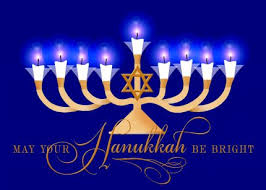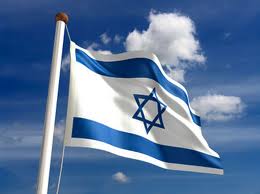Dear Friends;
I hope that you’ll enjoy the following Parasha summary followed by a Dvar Torah;
” Parsha in a Nutshell ”
Jacob settles in Hebron with his twelve sons. His favorite
is seventeen-year-old Joseph, whose brothers are jealous of the preferential
treatment he receives from his father, such as a precious colorful coat that
Jacob makes for him. Joseph relates to his brothers two dreams he has which
foretell that he is destined to rule over them, increasing their envy and hatred
towards him.
Jacob sends Joseph to check up on his brothers who are tending the flock away from home, and upon seeing him approaching they plot to kill him. Reuben convinces the brothers not to kill Joseph, but is unable to totally save him as the brothers sell Joseph into slavery in Egypt. The brothers dip Joseph’s special coat in the blood of a goat and show it to their father, leading him to believe that his most beloved son was devoured by a wild beast.
The Torah deviates from Joseph’s story to relate the story of Judah and his daughter-in-law Tamar.
The narrative then returns to Joseph in Egypt, where he becomes an extremely successful slave and is placed in charge of his master Potiphar’s household. Potiphar’s wife repeatedly tries to seduce Joseph, and when he refuses her advances, she screams and claims that he tried to rape her. Joseph is thrown into prison where he is once again placed in a position of leadership, this time being put in charge of the prisoners. Ten
years later, Pharaoh’s chief butler and baker are thrown into the same prison.
One night they each have a perplexing dream which Joseph accurately interprets,
and the portion concludes as the butler is returned to his former post and the
baker is executed, just as Joseph had predicted. But the butler forgets all
about Joseph and does nothing for him.
” Dvar Torah ”
Joseph!! Surely,everyone’s favorite biblical character!
The most dramatic story of the bible, if not of all times, which brings tears to
everyone’s eyes, year after year after year, with no doubts, belongs to our
beloved Joseph. Although, Joseph was not considered to be one of our Patriarch,
yet he has more Torah portions designated to him than any of our Forefathers.
Four Parashiot to be exact, does the Torah dedicate to our beloved Joseph.
Although he was famous for his charm and beauty, but our sages give him the
title of “Yosef HaSadik”, Joseph the righteous. Joseph earned his title of
righteousness (HaSadik) because he had control over his desires, and because he
was trustworthy and honest. His honesty, gained him the full trust of his
master, his prison warden and the King Pharaoh himself. But the name “Yosef
HaSadik” wouldn’t have been sealed, if he wouldn’t have forgiven his brothers
for the cruel act of selling him into slavery and separating him from his father
for so many years. Because of this unexpected act of forgiveness, not only
Joseph is adored by everyone, but he became the symbol of righteousness!
But it seems that even the best of us are not flawless.
The Torah reveals to us that Joseph didn’t go through life mistake free either.
At the beginning of the parsha the Torah says: “Joseph at the age of seventeen,
was a shepherd with his brothers, but he was a “Na-ar” among the sons of Bilhah
and Zilpah,…..”
The phrase that catches the eyes of our commentators is, ” he was a “Na-ar”…”. Na-ar means a young lad or a kid. Seventeen is not an age to be called a kid. Our sages say that Joseph acted immaturely and that’s why he was referred to as a kid. But what act of immaturity did he do? Well, Rashi says that he used to fix his hair and touch up his eyes so that he would look handsome! But some Chachamim disagree with Rashi. Just because he was fixing his hair, is it sufficient proof to call a Sadik immature?! Yosef was 17
years old at the time, and fixation of hair is not unusual behavior for a 17 year old to do.
But, even if we were inclined to write off Joseph’s practice of preening himself as the foolish behavior of a teenager, behavior that he would soon outgrow, we would still have a problem. Later in the parsha, when Joseph was in Potiphar’s house, the Torah says, “And Joseph was beautiful of form and beautiful of appearance”. Again, the Medrash says that he began to fix his hair. Joseph was already a grown adult. But still some commentators call the act of fixing his hair, immature!
So, what is it about fixing the hair that some commentators keep seeing it as a sign of immaturity? For some of us, it’s a dream to be able to run a comb through our hair or use a blow dryer once in a while! I would even do it at this age, if I had the opportunity! Do
you think that the fixation of hair is sufficient evidence to put down a Tzadik
and call him immature?!
Rabbi Shimon Schwab has a very interesting insight about this matter. He says that Joseph’s immature act wasn’t about his hair at all, but rather, it was something else. The Torah uses the term “Naar”, once again, in last week’s parsha (VaYishlach) in reference to Shechem, son of Chamor. “And the ‘naar’ did not delay to carry out the matter (of circumcision) because he desired Yaakov’s daughter.” At this point in time Shechem son of
Chamor was not a young lad. He was in fact one of the most prestigious people in
the city. So why does the Torah refer to him as a ‘naar’? Rav Schwab explains
that Shechem may have been an older person, he may have been a respected
individual, but he still acted like a ‘kid’ because he rushed into the agreement
proposed by Shimeon and Levi without thinking it through. And that is the
definition of a ‘naar’ or immaturity; someone who rushes in making a decision!
He says that Yosef was the King of his brothers. Yosef foresaw
this, prophetically, in his dreams. He, rightfully, envisioned that they would
bow down to him and that he would be the King. One of the laws of monarchy is
that the King has to be physically prominent. The Talmud states that a King must
groom his hair daily. He represents the people and he must have the type of
handsome appearance that people can respect.
When the Torah says that Yosef acted as a ‘naar,’ he explains that Yosef’s mistake was that he already saw himself as the King at the age 17– it was not an adolescent fixation of the
hair! The problem was that he saw himself as the ruler of his brothers before
the proper time for that relationship to develop. This, too, is the meaning of
the Medrash later in the parsha. When Yosef saw himself in a position of
leadership in Potiphar’s house, he again went back to fixing his hair. Why?
Again, Yosef thought that this was the time to act like the King, which he knew
he was destined to become. Again, he was premature. This premature behaviors,
not having the patience to wait, was the immature action that the Medrash
attributes to Yosef.
Yes my friends, we all have some ‘Naar’ left in us.
We all want everything to be done for us, ‘yesterday’. We all want to get rich
quickly. We all want to find our soul-mate in no time. When we are faced with a
problem or a misfortune in our lives, we quickly become impatient and we wonder
why is this thing happening to us. Remember that Joseph went through a lot of
hardship in his life, until finally, he became the ruler of Egypt. We should not
rush into making decisions. We should think things over and weigh things out
before making a decision. Marriage relationships have been lost over a simple
disagreement. Lifetime friendships have been lost over a feud. The Torah is
telling us that rushing into making decisions is an immature behavior. Patience
and thoughtfulness is a sign of wisdom and maturity.
So my friends, those of you who are blessed with hair, you can proudly run that comb through it and still believe to be a mature and a wise person. But those of you who do fix your hair, but don’t have the patience to think things over, I’m afraid that you are
behaving the same as a young but a good looking “kid”!
Shabbat
Shalom & Regards;
Martin








You must be logged in to post a comment.